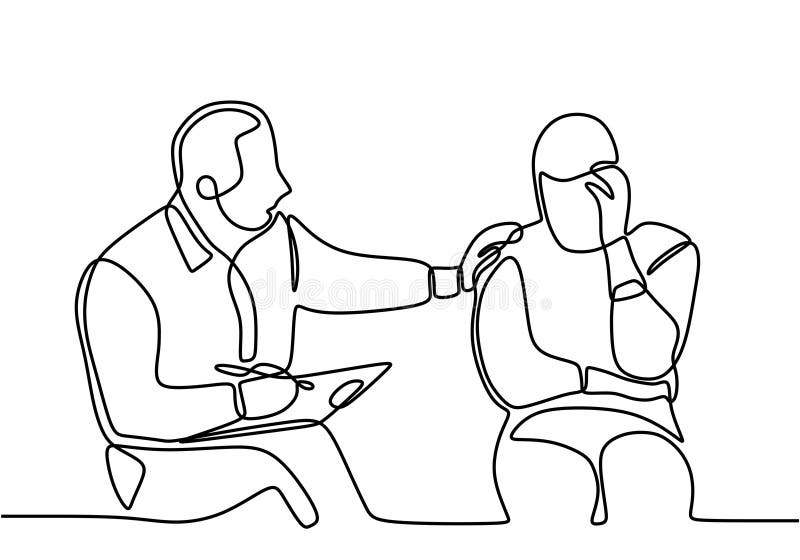Psych Therapy: A Comprehensive Overview to Strategies and Outcomes

Cognitive-Behavioral Treatment
Cognitive-Behavioral Treatment (CBT) is a widely used psychotherapeutic approach that focuses on recognizing and modifying useless thinking and behavior patterns. Established in the 1960s by Aaron T. Beck, CBT combines behavior and cognitive concepts to deal with numerous mental health and wellness concerns, consisting of clinical depression, anxiety, and stress-related disorders.
CBT is characterized by its structured, goal-oriented nature. Treatment generally involves a joint procedure in between the specialist and client, where specific problems are determined, and functional approaches are created to resolve them. Strategies such as cognitive restructuring, direct exposure treatment, and skill-building workouts are generally used. Cognitive restructuring entails tough and modifying adverse idea patterns, while exposure treatment aims to reduce fear and anxiety via steady direct exposure to been afraid objects or situations.
Evidence-based research supports the efficacy of CBT for a vast variety of mental problems - Best Psychologist in Delhi. Its focus on ability purchase and self-help techniques encourages customers to continue progression separately after therapy ends. The versatility and performance of CBT have actually made it a cornerstone in modern psychotherapeutic practice
Psychodynamic Strategies
Rooted in the early concepts of Sigmund Freud, psychodynamic techniques concentrate on discovering the subconscious mind and its influence on behavior and feelings. These approaches aim to reveal concealed ideas and feelings that might be driving maladaptive behaviors and mental distress. Central to this approach is the idea of internal conflict, often coming from unresolved previous experiences, specifically those from childhood.
Therapists making use of psychodynamic strategies utilize numerous key techniques, consisting of totally free organization, where patients are encouraged to talk openly to reveal subconscious material, and desire analysis, which translates the unrealized material of desires. In addition, the exploration of transference and countertransference dynamics within the restorative partnership is crucial. These interactions can supply understandings into the client's interior globe and relational patterns.
Psychodynamic treatment is typically longer-term compared to other techniques, using a deep and comprehensive understanding of the individual's mind. Study indicates that it can be especially reliable for intricate psychological wellness concerns, such as individuality problems and persistent anxiety. By cultivating self-awareness and emotional insight, psychodynamic therapy seeks to bring unconscious material to awareness, making it possible for people to attain long-term and purposeful adjustment in their lives.
Humanistic Strategies
Structure on the foundations laid by psychodynamic methods, humanistic techniques offer a distinct perspective concentrated on specific prospective and self-actualization. Coming from the mid-20th century, these techniques focus on the inherent goodness and development capacity of individuals, emphasizing a holistic sight of human experience. Trick numbers such as Carl Rogers and Abraham Maslow have considerably influenced this healing strategy, which includes methods like client-centered therapy and Gestalt treatment.
Client-centered treatment, developed by Rogers, plays a pivotal duty in humanistic methods. It counts on the therapist supplying an atmosphere of genuine favorable regard, compassion, and congruence. This cultivates a web risk-free space for customers to explore their sensations and experiences without judgment, promoting self-discovery and personal development. The therapist's duty is more of a facilitator than an authority, urging customers to harness their inner sources for healing.
Gestalt treatment, one more essential humanistic technique, stresses present moment recognition and the integration of body and mind. By focusing on the "here and now," clients gain greater understanding right into their present feelings and actions. Techniques such as role-playing and guided visualization are usually employed to help customers acquire a deeper understanding of themselves, inevitably leading to enhanced self-awareness and gratification.
Integrative Therapies
Integrative therapies represent a synthesis of numerous healing techniques tailored to satisfy the one-of-a-kind needs of each client. This imp source technique recognizes the intricacy of human psychology and the multifaceted nature of mental health and wellness concerns. By incorporating components from different schools of psychotherapy-- such as cognitive-behavioral therapy (CBT), psychodynamic therapy, and humanistic methods-- integrative treatments use an even more holistic and flexible treatment paradigm.
Specialists of integrative therapy evaluate each client's particular requirements, signs, and individual background to develop a tailored therapy strategy. This customized method boosts the potential for therapeutic success by dealing with the root causes of psychological distress and advertising total wellness. Methods may include mindfulness exercises, cognitive restructuring, and emotional handling, each chosen to target different aspects of the client's problems.
In addition, integrative treatments stress the restorative relationship, watching the client-therapist bond as a crucial component of reliable treatment. This relationship cultivates a helpful environment where customers really feel safe to discover and address their concerns. The versatility of integrative therapies makes them ideal for a wide variety of problems, including anxiousness, anxiety, injury, and interpersonal difficulties, consequently increasing their applicability and performance in diverse professional settings.

Measuring Treatment Results
Reviewing the efficiency of psychiatric therapy is critical for both customers and clinicians to make certain that the therapy is yielding the preferred end results. To accomplish this, numerous techniques and devices are employed to gauge therapy results systematically. Standardized analysis instruments, such as the Beck Clinical Depression Stock (BDI) and the Generalized Anxiousness Condition 7 (GAD-7), give quantitative information on signs and symptom seriousness and adjustments over time.
Along with standard tools, qualitative techniques like customer self-reports and clinical interviews use valuable insights into the individual experiences and regarded progress of clients. Consistently scheduled examinations, typically at the beginning, navel, and end of treatment, help in tracking the trajectory of enhancement or determining locations requiring adjustment.
Outcome measurement is not restricted to signs and symptom decrease; it also includes practical enhancements in day-to-day life, such as far better interpersonal relationships, enhanced work efficiency, and boosted overall wellness. Modern improvements in electronic health have introduced mobile apps and online platforms that facilitate real-time monitoring and feedback, even more refining the assessment process.
Ultimately, a comprehensive approach to measuring treatment outcomes guarantees that restorative interventions are effective, efficient, and customized to fulfill the specific requirements of clients, thereby optimizing the total healing experience.
Final Thought
Humanistic methods concentrate on individual development and self-actualization, while integrative treatments combine several methods for customized treatment plans. Reviewing therapy outcomes via standardized analyses and qualitative approaches makes sure a comprehensive understanding of efficiency, inevitably directing This Site clients towards sustaining psychological health and wellness renovations.
From the structured strategy of Cognitive-Behavioral Treatment (CBT) to the deep exploration of the subconscious in psychodynamic treatment, each approach brings one-of-a-kind advantages. Its emphasis on skill procurement and self-help techniques empowers customers to continue progression independently after treatment wraps up (Best Psychologist in Delhi). Secret figures such as Carl Rogers and Abraham Maslow have substantially influenced this healing method, which includes approaches like client-centered therapy and Gestalt treatment
